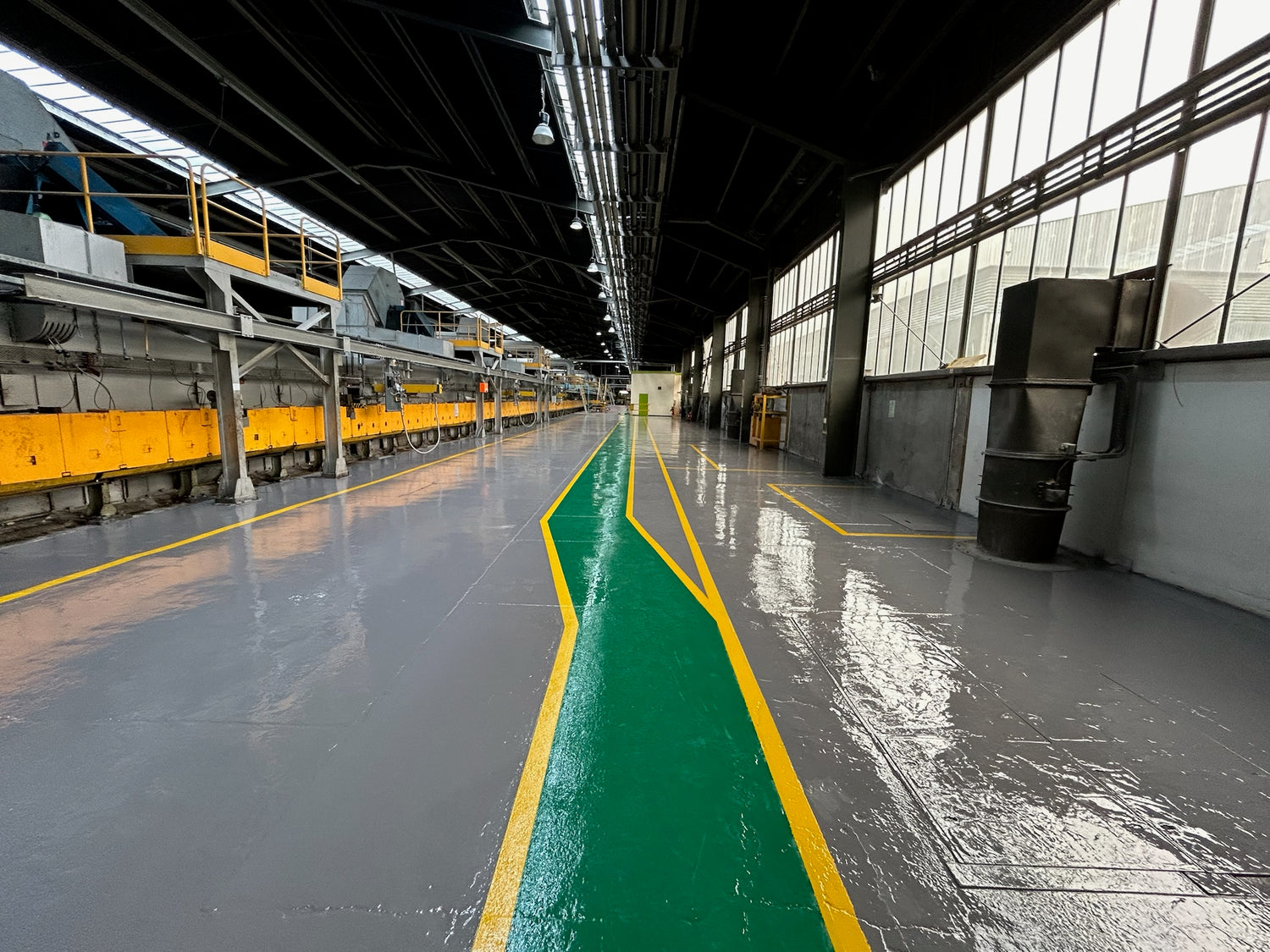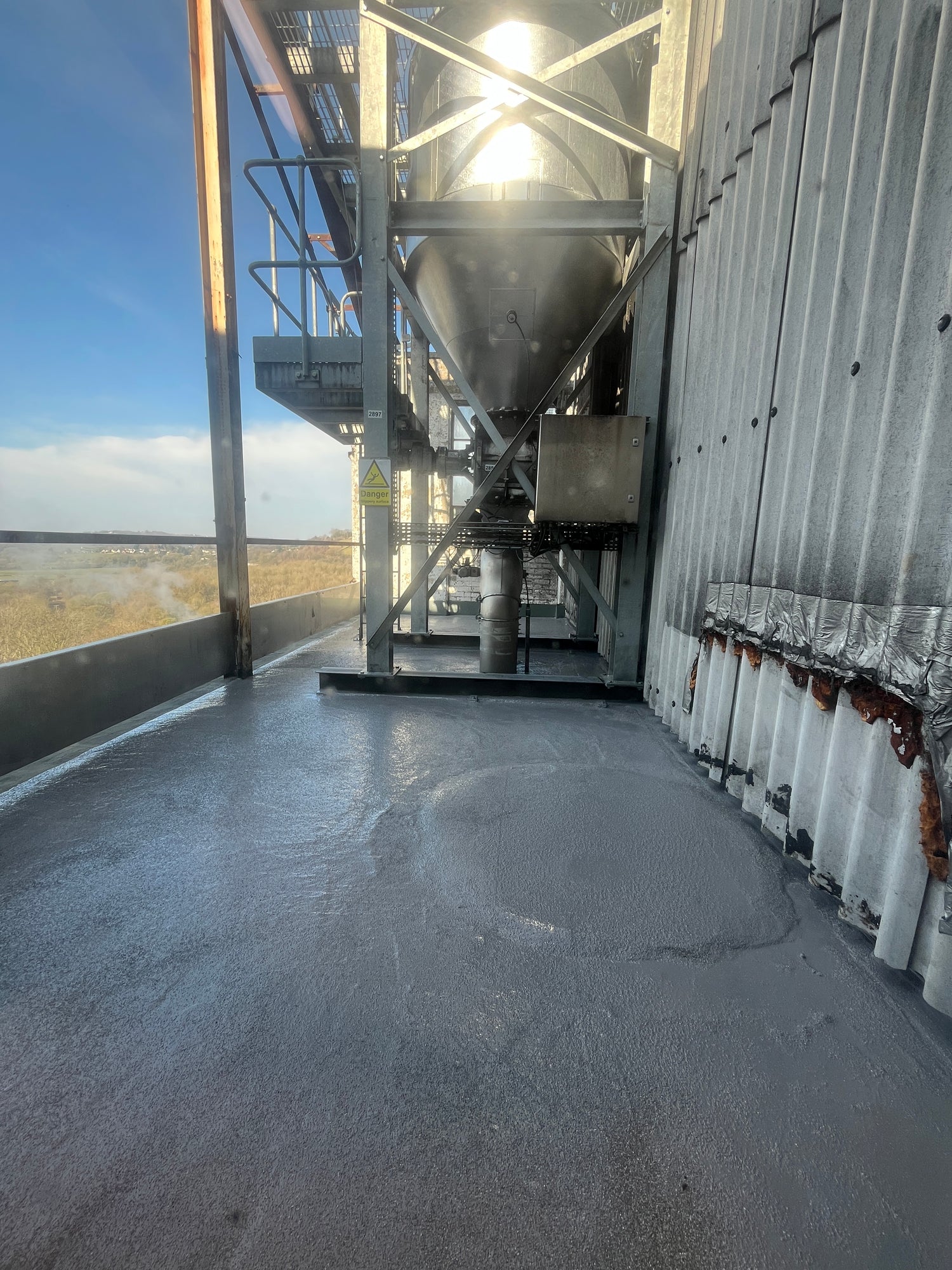Polyurethane Flooring
Polyurethane flooring is favoured in industrial areas due to its exceptional durability, chemical resistance, and ability to withstand heavy traffic and impacts. Its flexibility and resistance to temperature extremes, along with its non-slip and hygienic properties, make it a superior choice for demanding environments. Additionally, polyurethane floors are relatively easy to clean and maintain, minimizing downtime and disruption.
Durability and Resistance:
Polyurethane floors are highly resistant to abrasion, scratches, and impacts, making them ideal for areas with heavy machinery and constant foot traffic.
Chemical Resistance:
They can withstand spills and exposure to various chemicals, oils, acids, and alkalis, which are common in industrial settings.
Flexibility and Impact Resistance:
The flexibility of polyurethane allows it to absorb impacts and vibrations, preventing damage to the flooring and the structure itself.
Hygienic Properties:
Polyurethane flooring is non-porous and seamless, making it easy to clean and sanitize, which is crucial in industries like food processing and pharmaceuticals.

Durability
Epoxy is durable due to its chemical structure and ability to form strong bonds. When mixed, two part epoxy resin and hardener undergo a chemical reaction that creates a rigid, cross-linked network of molecules, giving it high resistance to wear, impacts, and chemicals.This molecular structure also provides excellent adhesion to various surfaces.

Walkways
Walkways are crucial safety measures because they create designated paths, reducing the risk of slips, trips, falls, and collisions with vehicles or machinery. By separating pedestrians from hazards, walkways minimize accidents and injuries in various settings, from workplaces to public spaces.

Anti-Slip
Anti-slip epoxy coatings can be crucial for workplace health and safety because they minimize the risk of slips and falls, which can lead to serious workplace accidents. By providing a textured, high-traction surface, these coatings improve stability and reduce the likelihood of accidents, particularly in areas prone to spills or moisture. They also help businesses comply with safety regulations.
